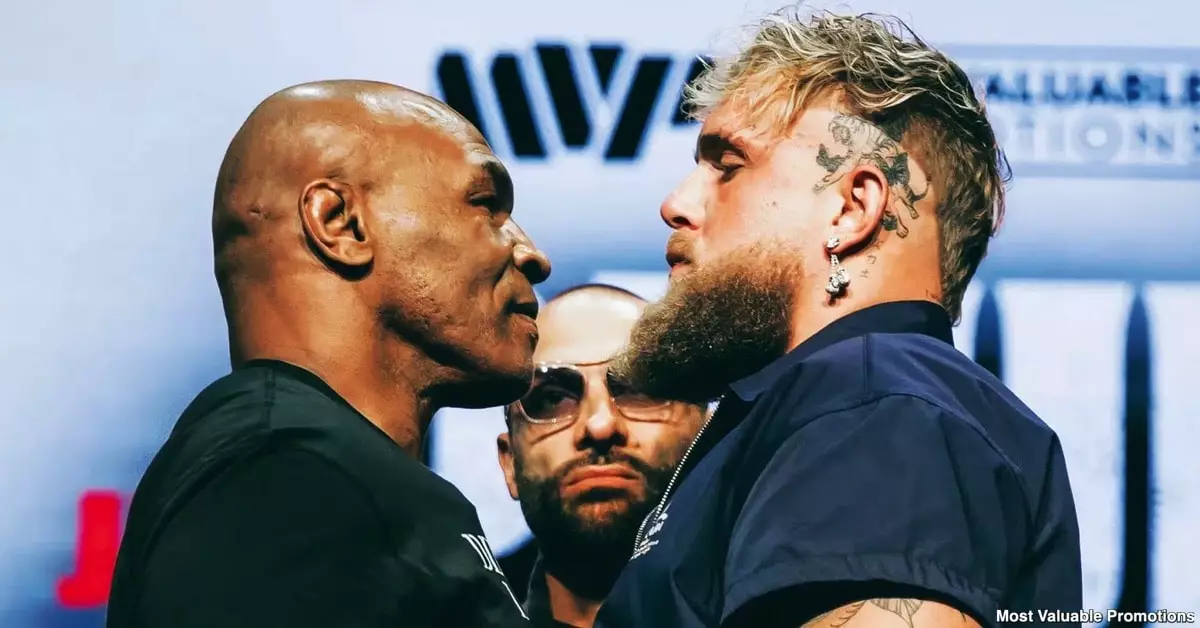In the realm of boxing, the mythos surrounding legendary figures often encounters the harsh realities of age and physicality. Recently, Mike Tyson has reignited discussions with a brief yet captivating video shared on social media. The 58-year-old heavyweight icon is seen delivering stinging blows to a heavy bag, eliciting a nostalgic response from fans who recall his prime. However, the apparent vigor of Tyson’s hands is not the only takeaway from the clip; broader implications arise when scrutinizing the context of his preparation for the upcoming fight against influencer Jake Paul.
While Tyson’s speed, at first glance, seems undiminished, observant viewers have noted the conspicuous inclusion of jump cuts within the footage. This edit causes speculation regarding the pace at which Tyson can sustain such attacks during an actual bout. The concerns are valid; can Tyson maintain his aggression beyond a mere 30 seconds without succumbing to fatigue? The video offers a tantalizing glimpse into his preparation but invites skepticism, emphasizing a potential gap between expectation and reality as Tyson aims to return to the ring.
Furthermore, Tyson’s physical condition raises red flags, as confirmed by the noticeable knee support enveloping his right leg. Such support suggests underlying issues that could hinder his mobility and performance. Although he exudes confidence, proclaiming his eagerness for the November 15th showdown, the question lingers: can the former champion endure the rigors of an actual fight against a younger opponent?
The narrative surrounding Tyson and Paul embodies a contentious intersection of traditional boxing and modern entertainment. Tyson’s storied past as a knockout artist contrasts sharply with Paul’s tactical, movement-oriented approach. The spectators are divided; some predict Tyson will secure a swift victory, revitalizing the anticipation of his raw power. Others posit that Paul will adopt a more strategic fighting style, looking to outlast the veteran and capitalize on Tyson’s lapses in energy.
As this fight looms on the horizon, it becomes apparent that both fighters bring vastly different motivations and skills to the ring. For Tyson, it’s a return to glory, a chance to reclaim a fragment of his former dominance. For Paul, it’s an opportunity to solidify his reputation as a credible fighter against a legendary figure, regardless of the outcome.
The allure of this fight extends beyond merely boxing aficionados; it taps into a larger cultural phenomenon where internet personalities clash with traditional athletes. This intersection has already shown potential to draw significant viewership. As fans eagerly await November 15th, the burning question remains—how many will tune in through streaming platforms like Netflix? The sense of curiosity about Tyson’s performance against Paul promises to cultivate a diverse audience eager for a spectacle that could redefine the boundaries of boxing entertainment.
Tyson’s upcoming fight encapsulates an unpredictable narrative, one painted with nostalgia, concern, and excitement. The mixed feelings echo the complexities of age in sports, making this event not just a match, but a poignant commentary on enduring legacy amidst the inevitable march of time.

